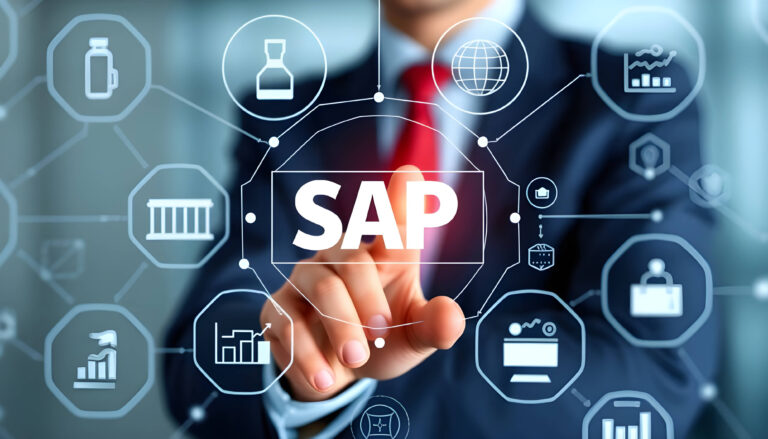SAP (Systems, Applications, and Products) is a robust suite of software solutions used by businesses worldwide to manage and integrate various aspects of their operations. While many are familiar with SAP’s functional modules, the technical modules play a crucial role in ensuring that SAP systems are effective, efficient, and adaptable. In this blog post, we’ll dive into the key SAP technical modules and explore their functions and significance.
1. SAP Basis
Overview:
AP Basis is the technical foundation that supports the SAP environment. It includes system administration, installation, configuration, and maintenance of the SAP software and database.
Key Responsibilities:
- System Installation and Configuration: Setting up and configuring SAP systems and their components.
- System Monitoring: Ensuring system health, performance, and availability.
- User Administration: Managing user accounts, authorizations, and security.
- Transport Management: Handling the transport of configuration and customization between different SAP systems.
Skills Needed:
- Proficiency in operating systems (Windows, Linux).
- Knowledge of databases (e.g., Oracle, SAP HANA).
- Understanding of network and security principles.
2. SAP ABAP (Advanced Business Application Programming)
Overview:
ABAP is SAP’s proprietary programming language used for developing custom reports, interfaces, enhancements, and forms within the SAP environment.
Key Responsibilities:
Custom Development: Creating custom reports, forms, and interfaces to meet specific business needs.
Performance Optimization: Improving the performance of ABAP programs and applications.
Enhancements and Modifications: Implementing enhancements to standard SAP functionality.
Skills Needed:
- Proficiency in ABAP programming.
- Understanding of SAP modules and their functionalities.
- Experience with data dictionary objects and performance optimization techniques.
3. SAP HANA
Overview:
SAP HANA (High-Performance Analytic Appliance) is an in-memory database platform that combines transactional and analytical processing. It serves as the foundation for many SAP applications and is known for its speed and efficiency.
Key Responsibilities:
Database Management: Handling data modeling, administration, and performance tuning in SAP HANA.
Application Development: Developing applications that leverage SAP HANA’s in-memory capabilities.
Migration and Upgrades: Assisting with the migration of existing systems to SAP HANA and upgrading to new versions.
Skills Needed:
- Knowledge of SAP HANA architecture and data modeling.
- Experience with SQL and SAP HANA-specific SQLScript.
- Understanding of database administration and performance tuning.
4. SAP Fiori
Overview:
SAP Fiori is a user experience (UX) design approach that provides a modern, responsive, and intuitive interface for SAP applications. It enhances user productivity and satisfaction by offering a consistent and user-friendly experience across devices.
Key Responsibilities:
- Design and Development: Creating and customizing Fiori apps to meet user requirements.
- Integration: Integrating Fiori apps with SAP backend systems.
- Performance Optimization: Ensuring the performance and responsiveness of Fiori applications.
Skills Needed:
- Proficiency in SAPUI5 and Fiori design principles.
- Knowledge of SAP Gateway and OData services.
- Experience with SAP Fiori elements and application development.
5. SAP Cloud Platform
Overview:
SAP Cloud Platform (SCP) is a cloud-based application development platform that enables organizations to build, deploy, and manage applications in the cloud. It provides tools and services for developing innovative solutions and integrating with SAP and non-SAP systems.
Key Responsibilities:
Application Development: Developing and deploying applications using SAP Cloud Platform services.
Integration: Integrating cloud applications with on-premise SAP systems and other cloud services.
Service Management: Managing and configuring cloud services and resources.
Skills Needed:
- Knowledge of cloud computing concepts and SAP Cloud Platform services.
- Experience with Java, Node.js, or other development frameworks supported by SCP.
- Understanding of cloud integration and deployment strategies.
6. SAP PI/PO (Process Integration/Process Orchestration)
Overview:
SAP PI/PO is an integration platform that facilitates communication and data exchange between SAP and non-SAP systems. It helps streamline business processes and improve data consistency across systems.
Key Responsibilities:
Integration Design: Designing and implementing integration scenarios and interfaces.
Configuration and Monitoring: Configuring integration scenarios and monitoring their performance.
Troubleshooting: Identifying and resolving issues in integration processes.
Skills Needed:
- Knowledge of SAP PI/PO architecture and components.
- Experience with integration design patterns and tools.
- Understanding of XML, XSLT, and web services.
Conclusion
SAP technical modules are essential for the effective functioning and customization of SAP systems. Each module plays a unique role in maintaining, developing, and optimizing SAP environments. For aspiring SAP professionals, gaining expertise in these technical areas can open doors to various career opportunities and provide a solid foundation for advancing in the SAP ecosystem.
Whether you’re interested in system administration, application development, or cloud solutions, mastering these technical modules will equip you with the skills needed to thrive in the world of SAP.








